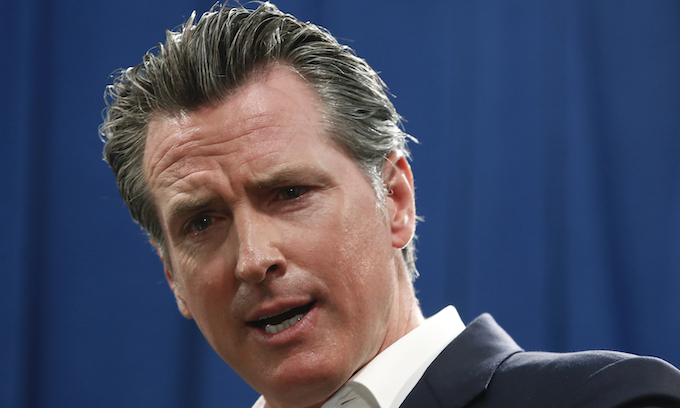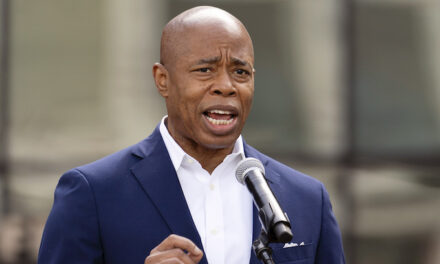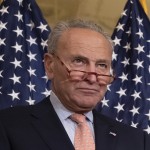A massive shortage of masks to protect doctors, nurses and other critical workers from the coronavirus sent California officials scrambling to vet companies on an unprecedented timeline, documents the State Treasurer’s Office released Wednesday show.
In at least two cases, high-dollar contracts for medical equipment fell apart after the state cut checks for them. One $456 million deal was with a company now under investigation by the Justice Department. Another for $8.75 million went to a Brazilian company that has been selling medical equipment for the past couple of months.
In some instances, officials readied money to send before the companies the state contracted with had been fully vetted. In one exchange about a $495 million wire request, a deputy director in the State Treasurer’s Office asked an official in the governor’s Department of Finance whether the company had been checked out.
“They’re vetting the vendor as we speak,” the official replied.
The exchange illustrates the unprecedented position California officials have found themselves in as they raced to secure needed equipment to combat the COVID-19 pandemic.
Treasurer Fiona Ma said standard screening processes have been disrupted and that her office, which normally just carries out the final stages of these financial transactions, has taken on an oversight role.
“This is a very unusual situation,” Ma said. “The sense of urgency and panic, trying to get the supplies, rushing to compete with the federal government and other states created a lot of tension at the beginning because they weren’t going through the proper process.”
The company involved in the $495 million wire transfer, Chinese auto manufacturer BYD, was reviewed by state officials and determined to be a legitimate supplier, according to the emails.
The BYD deal for surgical and N95 masks ultimately went through. Some of the surgical masks have already arrived, although the Newsom said the N95s have been delayed as they await federal certification. The governor’s office says $247.5 million of the initial wire transfer is being refunded under the terms of the contract because of the delay.
Another mask deal fell apart after the state sent $456 million to a company called Blue Flame that The Washington Post reported is now under criminal investigation by the Justice Department.
The Blue Flame deal, first reported by news outlet CalMatters, fell apart six hours after state officials initiated the wire transfer to the company for 100 million face masks. The state kept the money, but Newsom described it as a cautionary tale at a news conference Wednesday.
In another deal, California has had to recover money after masks shipped to the state were found to be moldy, Newsom said. In other cases, customs and border protection have intercepted equipment shipments.
He described the situation as a “remarkable moment in our history.”
“We all took off on a plane that we were building as we were flying,” Newsom said.
High demand has created a market with many new sellers and new buyers, said Jackson Elsegood, general manager of Escrow.com, which acts as an independent third part that holds funds while transactions take place.
“That’s sort of a recipe for disaster,” he said. “It creates an incredible environment for scams to appear and run rampant, all the way up to governments being hoodwinked with counterfeit and expired equipment.”
Banks flagged Blue Flame transaction
In the case of the Blue Flame deal, the state had already wired the money to the bank the company was using when a top executive at the bank called Ma’s office with concerns, Ma said.
The executive told her office that the Blue Flame Medical LLC account had been opened just the day before by a political operative and that they were not comfortable with completing the transfer, Ma said.
“My people were like ‘Oh my God, yes, send it back’,” she said.
At the same time, JP Morgan, another bank the state worked with on the deal, had reached out to her her office saying they thought the transaction was fraudulent and were calling the FBI, she said.
“That’s when I called the governor’s office and said, ‘this is fishy,'” she said. “‘We got the money back, but you need to vet these people better and go through the proper protocol.”
Blue Flame was founded by two Republican operatives, Mike Gula and John Thomas in late March. The company did not respond to a request for comment Wednesday afternoon.
Another deal crumbles
It’s not the only deal that has fallen through. On April 2, California wired $8.75 million to Hichens, Harrison and Co., a company that acts, according to its website, as a “reference on commercial relations between markets and the governments of China and Brazil.”
President Peter A. Leite declined to offer specifics of what California purchased from the company due to a nondisclosure agreement, but said the deal quickly fell through and the money was returned within a week.
“Nothing happened, they got the money back and that was it,” Leite said. “We cannot talk anymore than that. The deal was a regular supply and they decided not to go forward. Easy as that.”
Leite said the company oversees “billions of dollars” in deals with China and other countries every year. Headquarters are in Florida with a subsidiary in Brazil that Leite opened in 2007.
The company has offered stockbroking services for 215 years, with markets now in South Africa, Europe and South America. The company opened two years ago in the United States, per its website.
Leite said California might have asked for the money back because the state did not want to wait for the supplies, but said there was “no harm, no foul” with the deal.
“It was normal, a supply contract,” Leite said. “There was no problem at all with the contract, just a matter of them trying to do the best they can. Hopefully, you know, if they need help again we can help again. It’s not time to create problems with anybody, it’s time to help.”
BYD mask contract released
The Democratic governor has faced scrutiny from lawmakers about the deals, most notably related to the $1.1 billion agreement with BYD.
In a letter sent to Newsom on April 9, Sen. Holly Mitchell, D-Los Angeles, asked Newsom for more detail on the contract and raised issues with the rate at which his administration was cutting checks.
“Under normal circumstances, the Legislature would have had more time to deliberate an expenditure of this magnitude and would have been allowed to thoroughly vet the details of the contract before proceeding,” Mitchell wrote.
Assemblyman Jay Obernolte, R-Big Bear Lake, said he recognized that the administration was desperately trying to obtain protective gear, but wished Newsom’s team had collaborated early on with the Legislature before committing to expensive agreements.
“When your house is on fire, you have to put out the fire as quickly as you can, and later your worry who made the firehoses,” Obernolte said. “That’s not the concern. The concern is that we want this to be a partnership and we feel for the last six weeks it hasn’t been.”
Obernolte said it’s the Legislature’s constitutional duty to exercise spending oversight. Moving forward, he added, it’s important the administration better collaborate with the Legislature during the pandemic.
“We’re all on the same team,” he said. “We want the same things and are trying to respond to this unprecedented crisis.”
Although BYD has sent millions of surgical masks to California that officials have already begun to distribute, Newsom said the N95 masks the state purchased from the company have been “delayed” pending federal certification.
The state agreed to pay BYD $990 million for 300 million N95 masks for a per-mask cost of $3.30, according to an invoice provided by the Treasurer’s office. The contract, which Newsom’s office released late Wednesday, indicates the state is also paying $110 million for surgical masks from BYD at 55 cents each.
The $495 million officials discussed wiring represented an upfront payment for the masks, and Newsom’s Department of Finance has since told lawmakers that it is starting to make additional payments as masks arrive.
Despite requests from lawmakers and journalists, the administration initially declined to make the BYD contract public, arguing that doing so could jeopardize the mask shipments.
Secrecy surrounding protective equipment contracts is the norm right now, Elsegood said. Elsegood said his company, which acts as an independent third part that holds funds while transactions take place, has facilitated hundreds of transactions related to sensitive protective equipment orders and uncovered a “huge number” of fraudulent transactions.
With so much illegal activity in the market, details like batch numbers or location information in a contract could put equipment at risk before it reaches the intended destination, Elsegood said. The equipment could be stolen, or someone could swoop in and offer a higher price, he said.
Although he said he wasn’t familiar enough with BYD or the state of California as a buyer to comment on the contract, he said upfront payments like the one the state made are most common in deals that require the manufacturer to buy raw materials to fill an order.
BYD spokesman Frank Girardot said California is paying a base price per mask of $2.88 for N95 masks and that the additional cost is from shipping, taxes and other pass through costs.
“There’s nobody that can manufacture these masks in the quality or quantity we can,” he said. “We’re proud of what we’re doing and believe we’re well suited to do it in a way that benefits California and the taxpayers of California.”
He said the masks are “in the process” of being certified and that the company is confident they meet federal standards.
Newsom said Wednesday he was proud of the deal, saying that other states paid $6, $7, even $12 a mask.
“We negotiated a pretty good price in the middle of all of this,” he said.
___
(c)2020 The Sacramento Bee (Sacramento, Calif.)
Visit The Sacramento Bee (Sacramento, Calif.) at www.sacbee.com
Distributed by Tribune Content Agency, LLC.
—-
This content is published through a licensing agreement with Acquire Media using its NewsEdge technology.



















Recent Comments